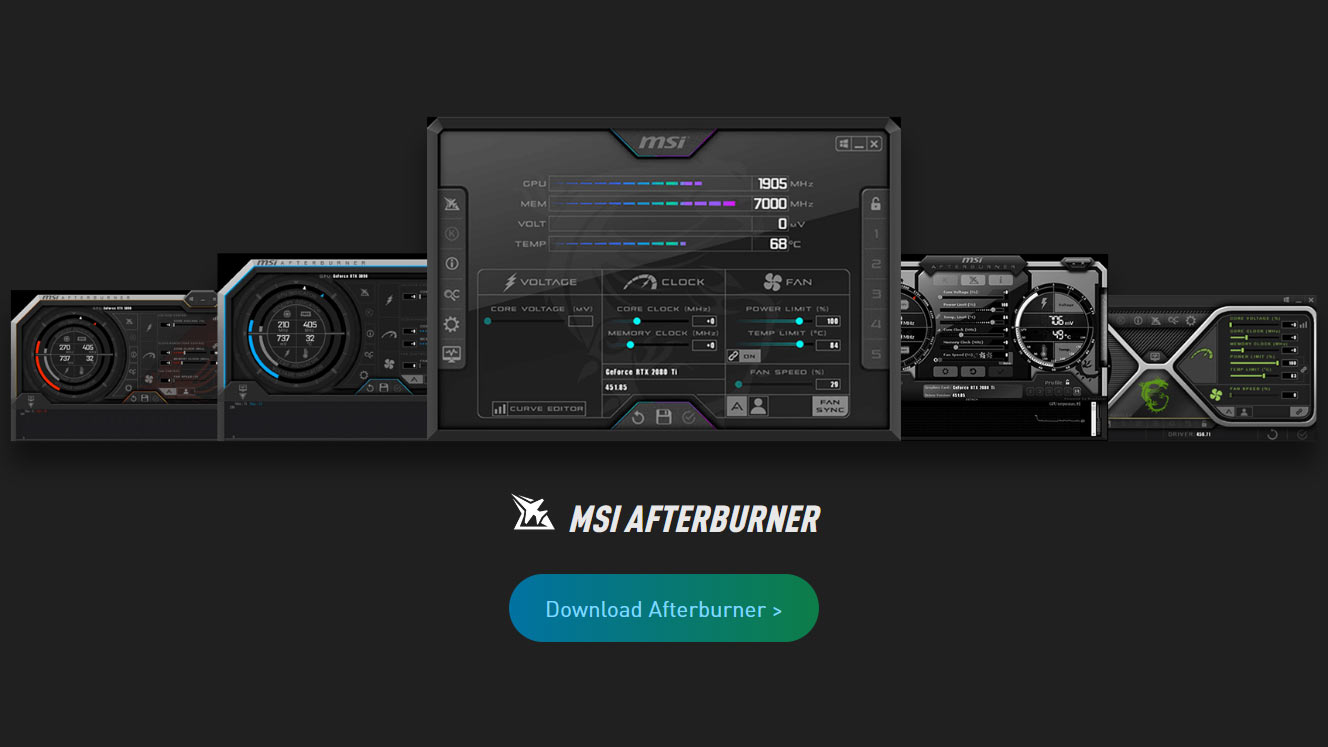MSI Afterburner finally drops Windows XP support — latest update adds Nvidia Reflex latency monitoring
Like sands through the hourglass, so are the days of our Windows XP.

MSI Afterburner's latest 4.6.6 update removes support for Windows XP, which puts the 2000s operating system even further into the ground than it already was (via VideoCardz). In exchange for sacrificing Windows XP support, the new update to MSI Afterburner adds Nvidia Reflex latency monitoring, Intel PresentMon statistics, and more, which will hopefully ease the pain for those still mourning Windows XP.
Although lots of applications dropped support for Windows XP years ago, MSI Afterburner kept supporting the old operating system. However, this was mostly happenstance, because XP support was derived from the fact that Afterburner had used the 2008 Visual C++ compiler. The latest update transitions Afterburner into the 2022 Visual C++ compiler, which doesn't support XP. This implies that Windows XP support wasn't exactly intentional, which could explain why it's been unceremoniously removed.
To get an idea on how late Afterburner is on dropping Windows XP, the last time we reported on any app ending support for the OS was in 2019, when Steam ended support on New Year's Day.
The new update does add a few new features to Afterburner, and also bundles in the latest version of RivaTuner Statistics Server, which Afterburner relies on for certain functions. The two highlights for Afterburner itself are voltage control for the RX 7800 XT and the addition of PCI Device IDs for upcoming Nvidia GPUs, which is mostly for compatibility purposes and probably won't provide any juicy details.
RivaTuner Statistics Server has now been updated to version 7.3.5, and this is arguably where things get more interesting. Latency monitoring is now possible in games with Nvidia Reflex. Games with Reflex support already have latency markers, which RivaTuner hooks into to determine latency. For games without Reflex, RivaTuner can inject its own latency markers, but the patch notes indicate that these statistics may be inaccurate.
On a similar note, RivaTuner's framerate limiter now has a new Reflex mode, which swaps out RivaTuner's own limiter for Nvidia's. This feature is supposed to be used with DLSS 3 Frame Generation, which the update says "is generally not compatible with any third party framerate limiters." Enabling this Reflex frame limiter in non-Reflex games apparently has the same benefit as enabling Reflex low-latency mode, which would be a pretty big deal if it works properly. Both the latency monitoring and Reflex-based framerate limiter only work in DX11 and DX12 games.
The last big ticket addition to RivaTuner is support for PresentMon, Intel's open-source hardware statistics app. One nice feature of PresentMon is its GPU busy data, which can be useful in determining if gaming performance is bottlenecked by the GPU or the CPU. It allows RivaTuner to display a "Limited by CPU/GPU" indicator, which extrapolates data from the GPU busy metric in a concise way. However, the update says PresentMon data is shown with a three second delay due to a pacing issue, which doesn't exactly make it real-time.
Get Tom's Hardware's best news and in-depth reviews, straight to your inbox.

Matthew Connatser is a freelancing writer for Tom's Hardware US. He writes articles about CPUs, GPUs, SSDs, and computers in general.
-
JamesLahey I mean, this sound came to mind:Reply
XP Shutdown Sound - https://www.myinstants.com/en/instant/windows-xp-shutdown/
Come to think of it, I kind of miss those startup and shutdown sounds, except when you sign off your computer at night and forget the volume is at normal levels!